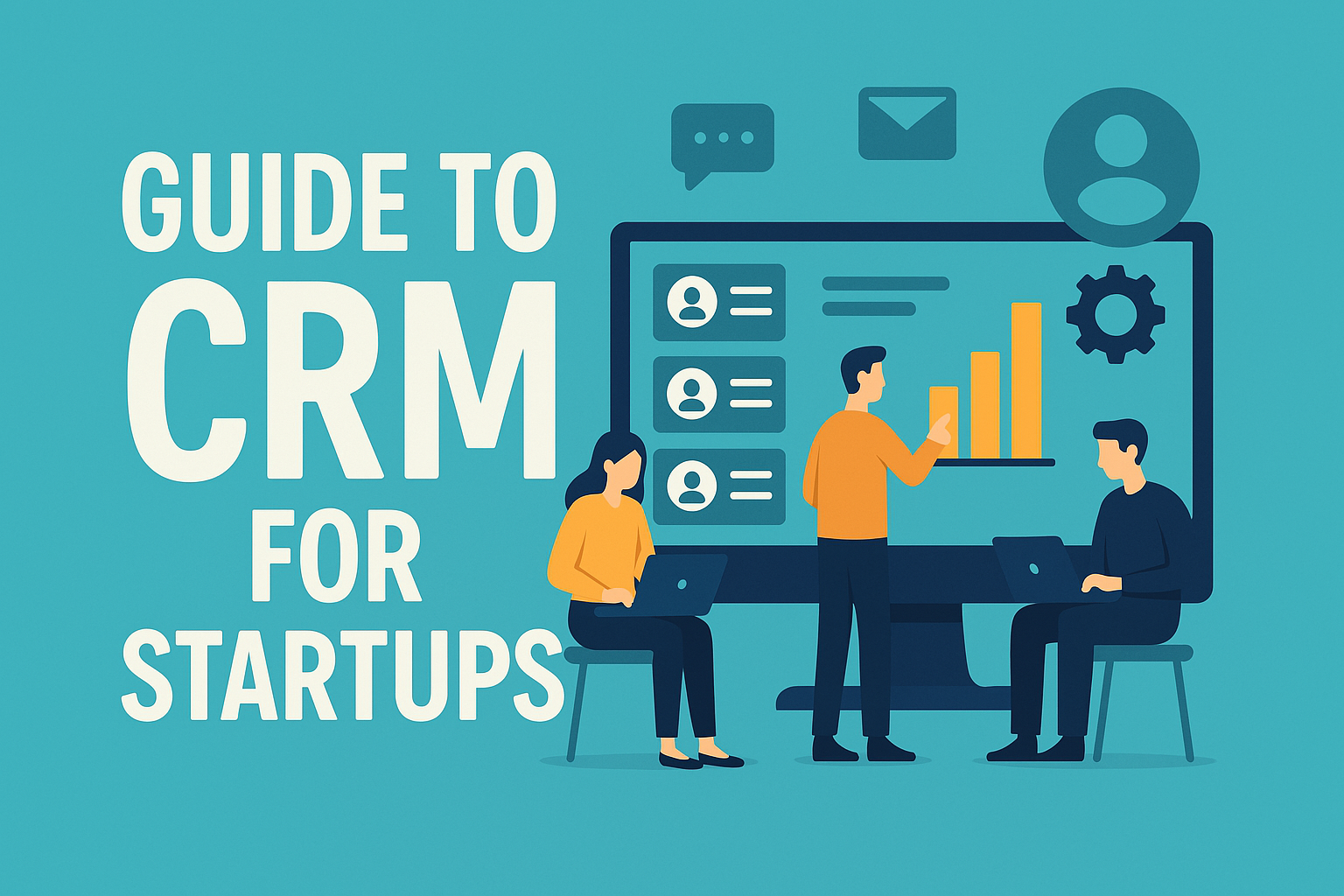As a startup founder, you’re constantly looking for ways to streamline your processes, find new insights, and deepen relationships with customers and stakeholders. One powerful tool that can help you achieve these goals is a Customer Relationship Management (CRM) system. In this article, we’ll explore the importance of CRM for startups, its benefits, and how to implement it effectively.
What is a CRM System?
A CRM system is a software solution that helps businesses manage their customer interactions and data in one place. It’s a centralized platform that enables you to store, organize, and analyze customer information, making it easier to understand their needs, preferences, and behaviors.
Why is CRM Essential for Startups?
Startups face unique challenges, such as limited resources, rapid growth, and intense competition. A CRM system can help you overcome these challenges by:
- Accelerating Growth and Market Share: By leveraging CRM data, you can identify new business opportunities, optimize sales processes, and increase revenue.
- Scaling Fast with the Right Tools: A CRM system provides a unified platform for managing customer interactions, sales, marketing, and customer service, ensuring that your team is equipped to handle rapid growth.
- Attracting and Retaining More Business: With CRM, you can build stronger relationships with customers by personalizing interactions, anticipating their needs, and delivering exceptional service.
- Improving Financial Health and Operating Efficiency: By automating workflows, reducing manual tasks, and optimizing resource allocation, CRM can help you decrease burn rate and increase cash flow.
- Expanding to International Markets: A CRM system enables you to manage global customer relationships, collaborate with teams in real-time, and access critical information from anywhere.
Benefits of CRM for Startups
Implementing a CRM system can bring numerous benefits to your startup, including:
- Increased Productivity: Automate repetitive tasks, reduce manual data entry, and free up time for high-value activities.
- Improved Customer Satisfaction: Deliver personalized experiences, anticipate customer needs, and resolve issues promptly.
- Enhanced Data Insights: Gain a 360-degree view of your customers, analyze behavior, and make data-driven decisions.
- Better Collaboration: Unify teams, streamline communication, and ensure everyone is working towards the same goals.
- Competitive Advantage: Stay ahead of the competition by leveraging CRM data, optimizing sales processes, and delivering exceptional customer experiences.
Choosing the Right CRM for Your Startup
With numerous CRM options available, it’s essential to select a system that meets your specific needs. Consider the following factors:
- Scalability: Choose a CRM that can grow with your business, handling increased data and user volumes.
- Customization: Select a CRM that allows for customization, ensuring it meets your unique business requirements.
- Integration: Opt for a CRM that integrates with your existing tools and systems, reducing data silos and improving efficiency.
- User Experience: Select a CRM with an intuitive interface, ensuring your team can easily navigate and adopt the system.
- Support: Choose a CRM provider that offers excellent customer support, training, and resources.
Implementing CRM Effectively
To maximize the benefits of CRM, follow these implementation best practices:
- Define Clear Objectives: Establish specific goals and objectives for CRM implementation, ensuring everyone is aligned.
- Conduct a Needs Assessment: Evaluate your business requirements, identifying areas where CRM can bring the greatest value.
- Choose the Right Features: Select the essential CRM features, avoiding unnecessary complexity and costs.
- Train Your Team: Provide comprehensive training and support to ensure your team is equipped to use the CRM effectively.
- Monitor and Evaluate: Regularly assess CRM performance, making adjustments and improvements as needed.
FAQs and People Also Ask
Q: What is the cost of a CRM system?
A: CRM costs vary depending on the provider, features, and scalability requirements. On average, expect to pay between $20 to $50 per user per month.
Q: How long does it take to implement a CRM system?
A: Implementation timeframes vary, but typically range from 2 to 6 months, depending on the complexity of the system and your team’s adoption rate.
Q: Can I integrate my CRM with other tools and systems?
A: Yes, most CRM systems offer integration capabilities with popular tools and systems, such as email marketing platforms, customer service software, and accounting systems.
Q: How do I choose the right CRM for my startup?
A: Consider your business needs, scalability requirements, customization options, integration capabilities, user experience, and support offered by the CRM provider.
Q: What are the benefits of using a CRM system?
A: CRM systems offer numerous benefits, including increased productivity, improved customer satisfaction, enhanced data insights, better collaboration, and a competitive advantage.
Conclusion
Implementing a CRM system is a strategic decision that can significantly impact your startup’s growth and success. By understanding the importance of CRM, its benefits, and how to implement it effectively, you can unlock new opportunities, streamline processes, and deliver exceptional customer experiences. Remember to choose the right CRM for your business, train your team, and regularly evaluate and improve your CRM system to maximize its benefits.
